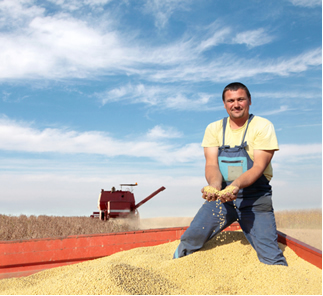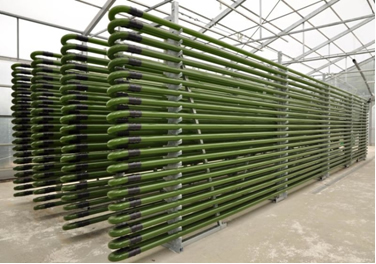Biodiesel is a biofuel made from plants (vegetable oils) or animals (fat animal) in order to replace diesel oil used in heavy vehicles such as trucks and bus.
Brazil is in a very privileged geographic region, as it is a tropical country, with lots of light, with an average annual temperature and many water resources that originate the most varied plant species that can be used for the production of biodiesel, such as sunflower, peanut, castor, soybean, corn, palm oil or palm oil, between others.
Currently, most of the biodiesel produced by Brazil comes from soy. Although soy has one of the lowest oil content by weight, it has other advantages for its cultivation, as the quick return on investment, as the main objective of its planting is to obtain feed. animal. In addition, it can be stored for long periods of time, is relatively fast growing, and its use is not restricted to hot or cold climates.

If we divide the regions of the country, the types of raw materials most used for the production of biodiesel in each of them are:
- North: palm (palm) and babassu;
- South, Southeast and Midwest: soybeans, sunflower and peanuts;
- North East: castor oil.

Palm or palm oil is not recommended for cold regions of the country, such as the south and southeast, as it solidifies at relatively low temperatures.

According to National Petroleum Agency (ANP), the production and consumption of biodiesel by Brazil is one of the largest in the world, and in 2010 the production annual was 2.4 billion liters and an installed capacity, in the same year, to about 5.8 billion liters.
Do not stop now... There's more after the advertising ;)
Despite having a constitution quite similar to that of petroleum diesel oil, due to its high density and viscosity, biodiesel cannot yet be inserted into the diesel-powered engine, they are necessary adaptations. Therefore, it is currently used in addition to petroleum diesel.
The mixture of diesel oil and biodiesel is called “BX”, where “B” indicates the mixture and the “X” corresponds to the percentage by volume of biodiesel in the mixture. For example, B2 means that the mixture corresponds to 2% biodiesel and 98% diesel oil, whereas a mixture that has 5% biodiesel and 95% diesel oil is called B5, and so on.
The National Congress approved Law No. 11,097, on 01/13/2005, which made the addition of 2% biodiesel to diesel (B2) mandatory until 2008. THE Resolution No. 6/2009 the National Energy Policy Council (CNPE) increased to 5% the mandatory percentage of biodiesel blending with diesel oil. There has been a continuous increase in this percentage and there are goals to gradually increase it to 20%.
Since 2006, the first Brazilian urban bus powered by biodiesel has been running on the streets of Rio de Janeiro.
All these incentives serve to strengthen the national industry, reduce dependence on petroleum diesel, which is still largely imported, and improve the condition of the environment. environment, as it is biodegradable, non-toxic, is practically free of sulfur and aromatics, as well as substantially reduces the emission of carbon monoxide and non-hydrocarbons. burned.
By Jennifer Fogaça
Graduated in Chemistry
Would you like to reference this text in a school or academic work? Look:
FOGAÇA, Jennifer Rocha Vargas. "Biodiesel in Brazil"; Brazil School. Available in: https://brasilescola.uol.com.br/quimica/biodiesel-no-brasil.htm. Accessed on June 27, 2021.
Chemistry

Emission of polluting gases, alcohol, diesel, gasoline, biodiesel, sugarcane fermentation, carbon monoxide, effect greenhouse, global warming, catalysts, dioxins in diesel, hormonal disturbances, device cancer respiratory.


